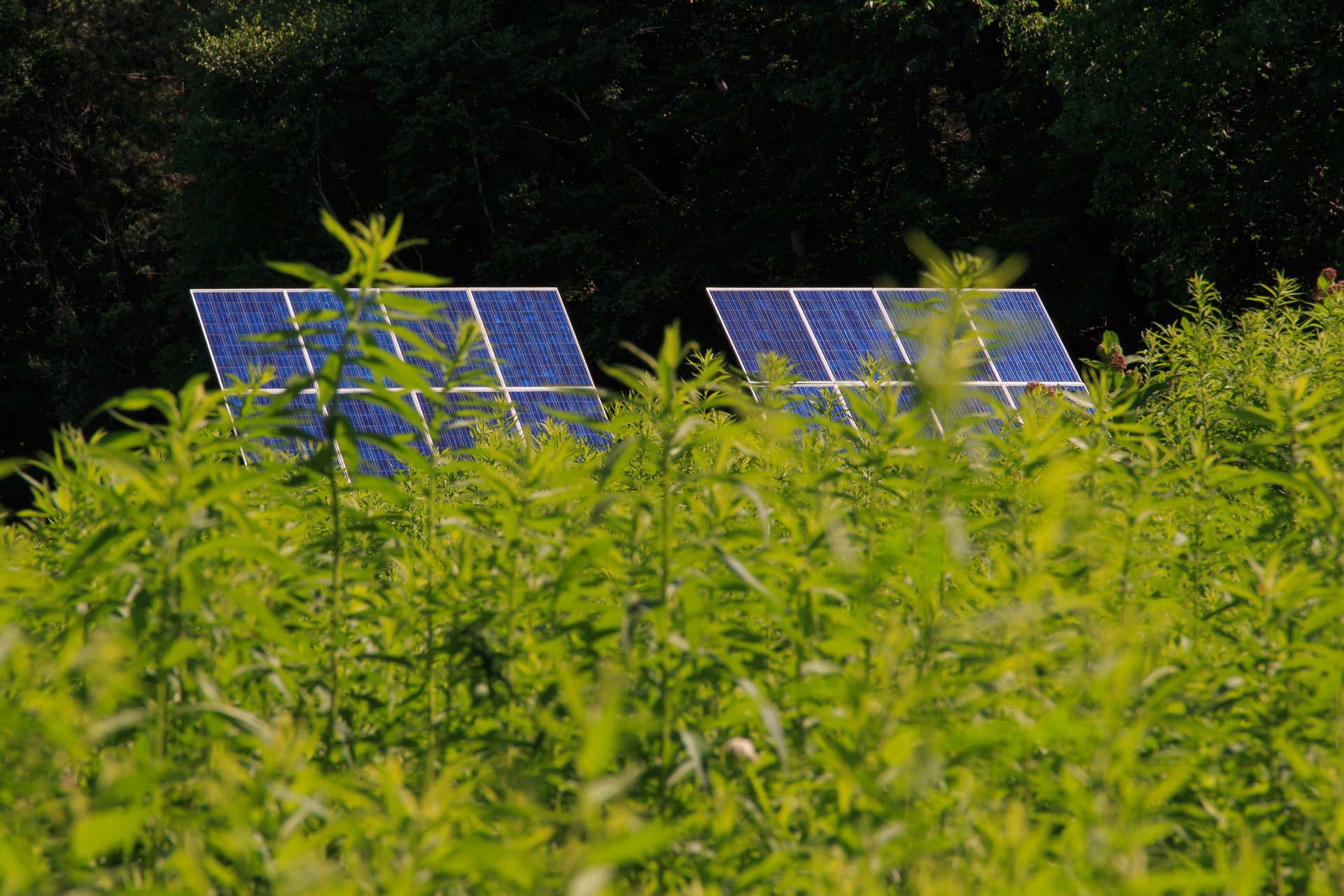Policy Priorities
Mass Audubon's Position on Solar Siting
Mass Audubon strongly supports solar energy as a key strategy in Massachusetts’ response to climate change. We’re working to support Massachusetts in developing responsible solar energy that protects nature and wildlife.
Solar Energy and Climate Change
Historically, Massachusetts has relied on burning fossil fuels like oil, natural gas, and coal to generate most of its electric power. This process directly contributes to climate change by releasing carbon dioxide and other greenhouse gases (GHG) that trap heat in the atmosphere. To address the climate crisis, Massachusetts must accelerate the transition from fossil fuel power sources to clean electricity sources like solar and wind.
The challenges that Massachusetts faces in moving away from fossil fuels are significant. Not only must the state radically increase the percentage of its power that is clean—currently nearly half—we’ll have to electrify all the homes, vehicles, and buildings that run on oil, natural gas, and gasoline right now. Current estimates suggest that we’ll need up to two to three times as much electricity in 2050 as we use today. And to get this energy from the places where it is generated to homes and workplaces, we’ll need a huge expansion in power lines, substations, and other transmission infrastructure.
The state projects that by 2050, nearly all of Massachusetts’ electric power will need to come from clean or renewable sources, with solar and offshore wind both playing major roles. That means we’ll need to radically speed up the rate at which we’re installing solar panels in the years to come—and Mass Audubon is ready to help.
Where to Responsibly Build Solar Energy
Beyond their value to the natural beauty of Massachusetts, forests, farmlands, and wetlands clean water, protect communities from natural disasters, and provide essential wildlife habitat.
Most importantly, these natural and working lands are just as essential to reducing climate-polluting emissions as solar and wind energy. By capturing carbon from the atmosphere and storing it (also known as carbon removal), forests and wetlands reduce our annual GHG emissions by 10 percent. Clearing forests and developing farmlands and wetlands in order to build solar arrays at scale isn’t just bad for biodiversity and ecosystems—it simply doesn’t make sense as a climate policy.
In recent years, more than 25% of new solar arrays have been located on former forests or farmlands. Our research finds that this trend will continue, and an additional 60,000 acres or more of high-value natural and working lands could be lost to solar in Massachusetts over the next two decades, unless we change solar policies and incentives.
While we need to install solar power as quickly as possible, we must seek to locate it on sites that maintain biodiversity and the ecosystems that remove carbon. Future solar energy development should target already developed lands like former industrial areas, brownfields, and developed open spaces. In addition, the state should deepen incentives for solar on our abundant rooftops and parking lots.
How We Push for Responsible Solar Development
Mass Audubon teamed up with Harvard Forest to study the question of whether we can meet our goals for solar energy without developing our most valuable forests, wetlands, and farmlands. So far, the results are promising—our Growing Solar, Protecting Nature research shows that we can!
We have enough locations that are appropriate for solar across the state to to meet our solar goals of 10 GW by 2030 and 27 GW by 2050, but we must deploy a diverse portfolio that combines new ground-mount solar projects, expanding solar to even more residential and commercial rooftops, and deploying solar canopies over parking lots.
We’re pushing the state to incentive solar developers to build on already developed lands, and to discourage building on natural and working lands. We've already successfully reduced incentives for projects on sensitive lands in the state's solar financing program, now called Solar Massachusetts Renewable Target (SMART).
Stay Connected with Policy and Advocacy
Learn about opportunities to advocate for our transformative policy agenda



